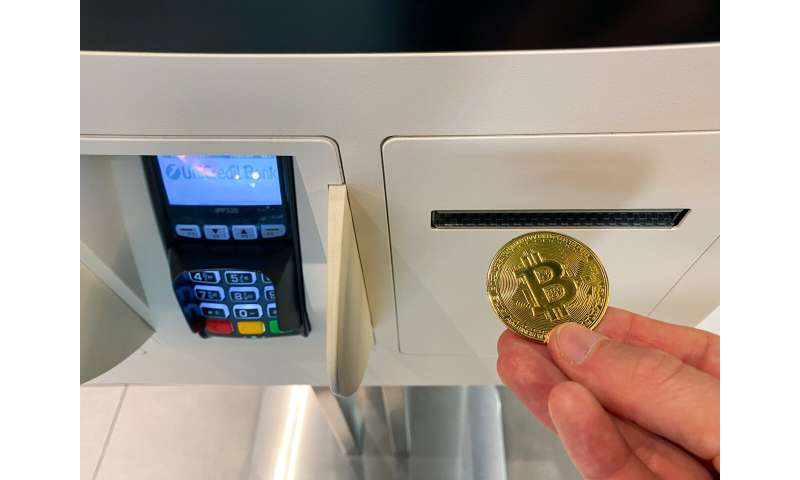Regulating cryptocurrency ATMs is necessary to combat illicit cyber activities – Bollyinside

Using crypto ATMs for criminal activities
According to a research by the GAO, because cryptocurrency ATMs are less closely regulated than cryptocurrency exchanges, they contribute to the surge in criminal activities. As a result, it is challenging to follow transactions made at ATMs.
FBI officials believe that the growth of the cryptocurrency industry would increase the use of digital currency kiosks for illegal operations like labour and drug trafficking. This is according to the GAO report.
In order to increase supervision of cryptocurrency ATMs, GAO advises the Internal Revenue Service and the Financial Crimes Enforcement Network (FinCEN) to collaborate under the auspices of the US Treasury Department. The organisation has been looking into how cryptocurrencies are being utilised in illegal activities including international trade and how U.S. agencies are pursuing crypto-initiated crimes, including Immigration and Customs Enforcement (ICE), the United States Postal Service (USPS), and the IRS.
More and more investors are becoming interested in the cryptocurrency market, and there is a variety of beginner-friendly material, tutorials, and guidance available on reputable crypto platforms like BitiCodes where newcomers may learn about crypto.
In its study, GAO listed a few of the challenges faced by government entities trying to stop illegal cryptocurrency activity. One is the general absence of information, which makes it difficult for law authorities to identify and apprehend cryptocurrency criminals and includes information regarding crypto kiosks.
The assessment by Chainalysis, a crypto research company, found that while the volume of crypto crime is continuously increasing, it was minor compared to the percentage of all 2021 crypto-transactions. The GAO's conclusions on increased crypto-fueled crime, however, disagree with this finding.
Simply put, Chainalysis came to the conclusion that while cryptocurrency crime will continue to climb despite its integration into the banking sector, legitimate crypto transactions will grow faster than illegal ones. money laundering
Drug cartels and transnational criminal organisations (TCOs) appreciate the usage of digital currencies due to the anonymity they provide and how quickly money can be moved across international borders. Crypto ATMs are at the core of the entire process as criminal groups turn to cryptocurrency to transfer money across borders without drawing the attention of law authorities.
Large sums of cash from illicit drug trade are placed in a kiosk, changed to digital currency, and then transferred to crypto wallets to lessen the danger of being discovered by law authorities. Labor trafficking
GAO reports claim that cryptocurrency is largely used to pay sex traffickers while also being utilised to finance human trafficking. According to Polaris, a US-based non-profit group working to end human trafficking, 23 out of 40, or more than half, of the major internet commercial sex trafficking sites used to market the sex trade accept cryptocurrency payments. This information was provided to GAO.
GAO claims that because it is challenging for online sex marketplaces to accept standard card payments, they have switched to crypto payments. One illustration is OnlyFans, a sex-focused content subscription service that restricted adult content due to pressure from banks before changing its mind in response to criticism from fans. drug trafficking
News Summary:
- Regulating cryptocurrency ATMs is necessary to combat illicit cyber activities
- Check all news and articles from the latest Business news updates.
This “Eyes on Trafficking” story is reprinted from its original online location.
 ABOUT PBJ LEARNING
ABOUT PBJ LEARNING
PBJ Learning is a leading provider of online human trafficking training, focusing on awareness and prevention education. Their interactive Human Trafficking Essentials online course is used worldwide to educate professionals and individuals how to recognize human trafficking and how to respond to potential victims. Learn on any web browser (even your mobile phone) at any time.
More stories like this can be found in your PBJ Learning Knowledge Vault.
EYES ON TRAFFICKING
This “Eyes on Trafficking” story is reprinted from its original online location.
ABOUT PBJ LEARNING
PBJ Learning is a leading provider of online human trafficking training, focusing on awareness and prevention education. Their interactive Human Trafficking Essentials online course is used worldwide to educate professionals and individuals how to recognize human trafficking and how to respond to potential victims. Learn on any web browser (even your mobile phone) at any time.
More stories like this can be found in your PBJ Learning Knowledge Vault.
